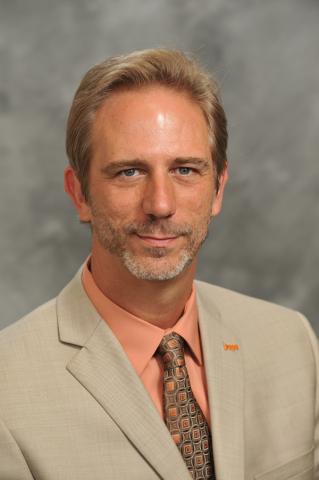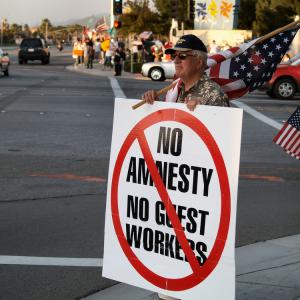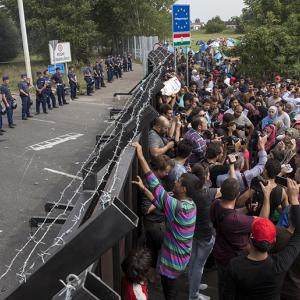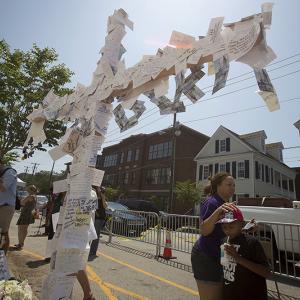
Rev. Dr. David P. Gushee is Distinguished University Professor of Christian Ethics and Director of the Center for Theology and Public Life at Mercer University. One of the leading moral voices in American Christianity, he is the author or editor of 21 books, including Righteous Gentiles of the Holocaust, Kingdom Ethics (with a new 2nd edition coming out in June 2016), The Sacredness of Human Life, Changing Our Mind, and Evangelical Ethics. His next book, aiming to help Christians think about American public life, is called Letter to My Anxious Christian Friends. It will be out in Fall 2016. Dr. Gushee is the recently elected Vice-President of the American Academy of Religion and President-Elect of the Society of Christian Ethics. He blogs twice weekly at Religion News Service, and serves on the boards of Sojourners and the Center for Victims of Torture. He has lectured on six continents. Professor Gushee, a husband, dad, and grandfather, lives in Atlanta with his family.
Posts By This Author
Manchester: What Kind of Person Does This?
It is not only religion, and not only one particular religion, that produces murderous subcultures. Sometimes these subcultures are nationalist, sometimes racist, sometimes anarchist, and often a combination of many ideologies and convictions, many loves and hatreds. As we grieve Manchester, let us not forget murderous subcultures closer to home. Much closer.
When Our Need to Believe Met the 2016 Election
People need to believe in something, or someone, or Someone.
This human need to believe is a very powerful force. It can overcome a great deal of countervailing evidence. One place this is obvious is in politics.
The Abortion Impasse

Alex Mit / Shutterstock
There is no legislative solution to the problem of abortion. There is no president who can end abortion. There is no Supreme Court justice who will solve abortion.
This is not just because we Americans, including we American Christians, have been shouting at each other about abortion for more than 40 years, with no end in sight. It is not just because the conflicting beliefs that people have about abortion are unlikely to change. It is not just because our polarized interest groups and political parties now gain support off of abortion. It is not just because the two “sides” on abortion are roughly balanced and appear likely to remain so.
Abortion is the sad song that never ends. It never ends because at one level it is an intractable human problem, visible in all times and cultures. It goes like this: Fertile heterosexual males and females are needy, passionate, sexual creatures who are drawn to each other and often end up having sex. They do so for all kinds of reasons, some good, some just okay, some terrible. When a fertile male and fertile female are “shooting with live bullets,” sometimes the woman will get pregnant. This is true sometimes when they are using birth control and certainly when they are not using birth control. The God-given power of mammalian reproduction is not easily denied.
Almost every known society has attempted to create systems of social control to limit sexual contact between fertile men and women, in large part because of the procreative power of the mature human body. These have been remarkably comprehensive social systems. They have involved religious, political, legal, moral, communal, and familial efforts to train attitudes, impose constraints, inflame fears, and so on. Always they have involved efforts to limit private contact between sexually mature men and women outside of the socially approved context for procreation—usually, marriage.
When Religion Makes People Worse

Image via SunSlice Photography/Flickr
As a wizened old veteran of the fight, I struggle with discouragement sometimes. It is not just that many Christians fail to live up to the clear demands of Christian discipleship. It’s that we can’t even agree on what those demands are. We all say we believe in Jesus, but what we make of that belief is so irreconcilably different that I am not sure that we are in any meaningful way members of the same religious community.
4 Ways Trump Reminds Me of Popular Preachers

Image via REUTERS/Jonathan Ernst/RNS
Many observers are wondering how exactly Donald Trump is winning so much “evangelical” Christian support. Leaving aside definitional quibbles about the meaning of the term “evangelical,” why is this uber-worldly candidate doing so well among this segment of voters?
Are You One of These 4 Types of Evangelicals?

Image via val lawless / Shutterstock.com
Many people are mystified by “evangelicals.” It’s a word the average nonreligious person doesn’t often hear in the U.S. — except for when it is time to nominate another GOP presidential candidate. Then we hear about who those millions of “evangelicals” are supporting, always under the assumption that all evangelicals are into politics and all will support a Republican.
As an evangelical myself, this is just one of the many misunderstandings of evangelicals that drive me up the wall. It’s a problem I’ve tried to address in several of my books, most recently Evangelical Ethics (Westminster John Knox Press).
Let me take another brief crack at it here. I want to propose that there are four different kinds of evangelicals, or evangelicalism, yielding four very different results.
Seven Things Preachers Need to Say About Syria

Image via Adwo / Shutterstock
The Syrian crisis is escalating in unnerving ways with the arrival of Russian troops and the beginning of direct Russian military intervention. What had been a local and regional humanitarian disaster now risks becoming a superpower confrontation between Russia and the United States. Undoubtedly the introduction of Russian firepower on the scene will bring more civilian suffering, dislocation, and death.
If I were looking for handles for prophetic preaching on the Syria situation, I might select the following.
Anti-Immigrant Rhetoric Can Be Deadly

Image via thomas m spindle / Shutterstock
Some of this year’s crop of politicians tell us that illegal or undocumented immigrants pose a deadly threat to our country. I say that anti-immigrant rhetoric is the more dangerous threat. It has been deadly before, here and in other countries. It can easily become deadly again.
You can watch the rhetorical escalation up the ladder — or down the slippery slope, choose your metaphor — toward danger.
Step one: It is perfectly reasonable for those concerned about illegal immigration to express concern about our nation’s ability to secure its borders, especially from those who might pose a real threat. As one who regularly waits in lines to pass through border controls, I get it. In a nation-state world, borders matter. All nations attempt to secure their borders. The United States has a right and a need to secure its borders.
The Global Refugee Crisis Is a Moral Test for All of Us

Image via Marko Djurica/REUTERS/RNS
Western claims to stand for human dignity and human rights usually look pretty hollow whenever a major refugee crisis hits. That is what is happening now, as millions of refugees seek asylum in Europe — and mainly run into closed doors and cold shoulders.
The current crisis is a grave one. According to Amanda Taub, 19 million people today are refugees. They come from all over, though today especially from Africa and the Middle East. Four million have fled Syria since 2011. They are making global headlines as they surge into Europe, which is for many just the latest stop on a desperate odyssey.
They are dying in disturbing numbers — in rickety boats, sealed trucks and squalid refugee dumping grounds. They are not wanted where they come from and not wanted where they are going.
Donald Trump and the Politics of White Male Anger
Donald Trump’s ongoing narrative about political correctness being “the big problem” in this country may help explain his surprising climb in this week’s presidential polls.
Billionaire Trump does not appear to have suffered too much on the personal front for having had to live in a more “PC” America.
But his message seems to resonate with (other) aggrieved white males, which may help to explain his rising popularity as a presidential candidate.
Trump said at the Cleveland GOP presidential debate that, “The big problem that this country has is being politically correct. … I frankly don’t have time for total political correctness, and to be honest with you, this country doesn’t have time either. This country is in big trouble. We don’t win anymore.”
Why Routine Divorce is Now Inevitable, Even Among Christians

Image via graham tomlin/Shutterstock
A LifeWay Research survey released last week on the morality of divorce found that for most Americans, the reason an individual initiates divorce doesn’t matter in terms of how they morally evaluate the rightness or wrongness of that divorce. Pastors, though, still tend to draw moral distinctions between reasons for divorce.
Based on years of research on Christian tradition as it pertains to marriage and divorce, I can tell you what this finding means. The answer is not especially pretty: Routine divorce is now inevitable in American culture, including among religious people — with one possible exception.
Let’s take this problem apart.
Don’t Blame Planned Parenthood for Our Abortion Culture

Photo via Susan Montgomery / Shutterstock.com
I won’t pile on Dr. Nucatola. The video seems pretty disastrous for her and for Planned Parenthood.
I will pile on us. Us? Yes, we the people of the United States of America.
We are the ones who have created a society in which we have become utterly dependent on abortion.
We are the ones who choose every year to turn to abortion clinics and drugs to end one out of five healthy pregnancies.
We are the ones who keep having sex outside of committed and marital relationships — and thus risking an unwelcome pregnancy.
We are the ones who keep having sex without using contraceptives, even when they are readily available.
We are the ones who fight over the politics of abortion without doing much to reduce demand for abortion.
Why Civil Disobedience Is Irrelevant to Gay Marriage

Photo via sergign / Shutterstock.com
Despite threats from some conservative Christian dissenters, civil disobedience may turn out to be an irrelevant response to gay marriage.
To understand why, we have to think seriously about what civil disobedience really is.
Here’s a good definition: If a government mandates what religious people believe God forbids, or forbids what religious people believe God mandates, civil disobedience may be required.
In the first case civil disobedience involves the refusal to do what government commands, and in the second case it involves the continued practice of an act that government has banned.
Could this apply to the new legalization of gay marriage nationwide?
Do We Need Unholy Guns in Holy Places?

A mother and son stand outside Emanuel African Methodist Episcopal Church in Charleston, S.C., on June 22, 2015, at a makeshift memorial for victims of last week’s mass shooting. Photo courtesy of REUTERS / Carlo Allegri / RNS
I keep thinking about one stubborn fact of my own (limited) experience: I have never attended a Christian church that employed armed security, and I have never visited a Jewish synagogue that was not guarded by armed security. I first noticed it at a prosperous synagogue many years ago in northern Virginia, but since then have seen it elsewhere in the U.S. and abroad. I will never forget when my wife and I visited the historic Great Synagogue in Rome — where a 2-year-old boy had been murdered , and 34 children injured, in a horrific 1982 attack on a Shabbat service. A machine-gun-toting Italian police officer guarded that synagogue the day we were there. Armed security was certainly present in Jerusalem when I visited a synagogue in that city.
People regularly victimized by violence, including in their holy places, will seek to protect themselves. I cannot fault them for it. I fault those whose crimes have evoked this response.
Franklin Graham’s Boycott Points Us Toward an Enclave Society
Boycotts are most likely to work when the boycott is very carefully planned; when the boycotters clearly have the moral high ground; when they can convince the broader public that the boycott is a last resort; when they can build a critical mass of public support; and when there is some chance that a boycott can make a meaningful difference.
Graham’s effort to boycott Wells Fargo failed on all five counts.



